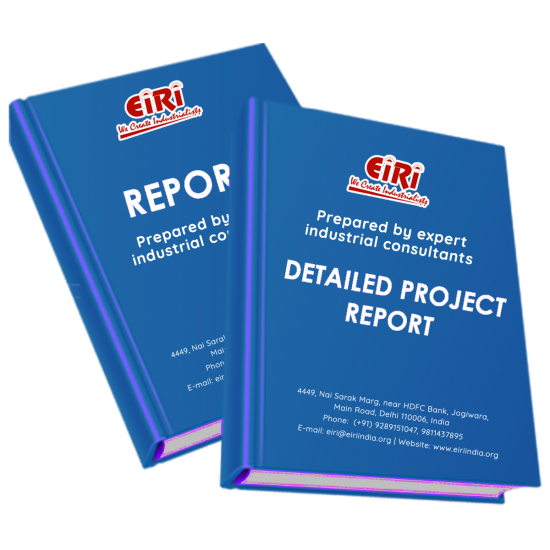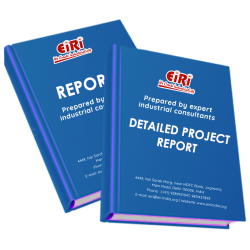Detailed Project Report on Cell Cast Acrylic Sheet

- More than 40 years of experience
- Managed by expert industrial consultants
- ISO 9001-2015 Certified
- Registered under MSME, UAM No: DL01E0012000
- 24/5 Research Support
Get your quesries resolved from an industry expert. Ask your queries before report or book purchase. - Custom Research Service
Speak to the our consultant to design an exclusive study to serve your research needs. - Quality Assurance
All reports are prepared by highly qualified consultants & verified by a panel of experts. - Information Security
Your personal & confidential information is safe & secure.
CELL CAST ACRYLIC SHEET
[EIRI/EDPR/1442] J.C. 223
INTRODUCTION
Acrylic plastic refers to a family of synthetic, or man-made, plastic materials containing one or more derivatives of acrylic acid. The most common acrylic plastic is polymethyl methacrylate (PMMA), which is sold under the brand names of Plexiglas, Lucite, Perspex, and Crystallite. PMMA is a tough, highly transparent material with excellent resistance to ultraviolet radiation and weathering. It can be colored, molded, cut, drilled, and formed. These properties make it ideal for many applications including airplane windshields, skylights, automobile taillights, and outdoor signs. One notable application is the ceiling of the Houston Astrodome which is composed of hundreds of double-insulating panels of PMMA acrylic plastic.
Like all plastics, acrylic plastics are polymers. The word polymer comes from the Greek words poly, meaning many, and meros, meaning a part. A polymer, therefore, is a material made up of many molecules, or parts, linked together like a chain. Polymers may have hundreds, or even thousands, of molecules linked together. More importantly, a polymer is a material that has properties entirely different than its component parts. The process of making a polymer, known as polymerization, has been likened to shoveling scrap glass, copper, and other materials into a box, shaking the box, and coming back in an hour to find a working color television set. The glass, copper, and other component parts are still there, but they have been reassembled into something that looks and functions entirely differently.
The first plastic polymer, celluloid, a combination of cellulose nitrate and camphor, was developed in 1869. It was based on the natural polymer cellulose, which is present in plants. Celluloid was used to make many items including photographic film, combs, and men's shirt collars.
In 1909, Leo Baekeland developed the first commercially successful synthetic plastic polymer when he patented phenol formaldehyde resin, which he named Bakelite. Bakelite was an immediate success. It could be machined and molded. It was an excellent electrical insulator and was resistant to heat, acids, and weather. It could also be colored and dyed for use in decorative objects. Bakelite plastic was used in radio, telephone, and electrical equipment, as well as counter tops, buttons, and knife handles.
Acrylic acid was first prepared in 1843. Meth acrylic acid, which is a derivative of acrylic acid, was formulated in 1865. When meth acrylic acid is reacted with methyl alcohol, it results in an ester known as methyl methacrylate. The polymerization process to turn methyl meth acrylate into poly methyl meth acrylate was discovered by the German chemists Fittig and Paul in 1877, but it wasn't until 1936 that the process was used to produce sheets of acrylic safety glass commercially. During World War II, acrylic glass was used for periscope ports on submarines and for windshields, canopies, and gun turrets on airplanes.
COST ESTIMATION
Plant Capacity 4800 sq.ft./Day
Land & Building (5000 sq.mt.) Rs. 7.18 Cr
Plant & Machinery Rs. 1.41 Cr
Working Capital for 2 Months Rs. 1.58 Cr
Total Capital Investment Rs. 10.81 Cr
Rate of Return 38%
Break Even Point 43%
CONTENTS
INTRODUCTION
USES OF POLYMETHYLMETHACRYLATE IN ORTHOPAEDIC SURGERY
MARKETS
ANNUAL PRODUCTION OF POLY (POLYMETHYL METHACRYLATE)
MANUFACTURE OF ACRYLIC SHEET
CLEANER TECHNOLOGY IN THE ACRYLIC CAST SHEET PRODUCTION
ENVIRONMENTAL IMPACT EVOLUTION OF THE ACRYLIC SCRAP RECYCLE
FLOW SHEET FOR THE PRODUCTION OF CELL CAST ACRYLIC SHEET
SUPPLIERS/MANUFACTURERS OF CELL CAST ACRYLIC SHEET
OTHER RELATED INFORMATIONS
LOW MOISTURE ABSORBING ACRYLIC SHEET
DEVICE FOR CASTING ACRYLIC SHEETS
TRANSPARENT BULLET-RESISTANT ACRYLIC SHEET
FIRE RESISTANT POLY(METHYL METHACRYLATE) COMPOSITION
FLAME RETARDANT POLYMETHYL METHACRYLATE COMPOSITIONS
PROCESS FOR PRODUCING POLYMETHYL METHACRYLATE
PREPARATORY EXPERIMENTS
SUPPLIERS OF PLANT AND EQUIPMENTS
APPENDIX – A:
01. PLANT ECONOMICS
02. LAND & BUILDING
03. PLANT AND MACHINERY
04. OTHER FIXED ASSESTS
05. FIXED CAPITAL
06. RAW MATERIAL
07. SALARY AND WAGES
08. UTILITIES AND OVERHEADS
09. TOTAL WORKING CAPITAL
10. TOTAL CAPITAL INVESTMENT
11. COST OF PRODUCTION
12. TURN OVER/ANNUM
13. BREAK EVEN POINT
14. RESOURCES FOR FINANCE
15. INSTALMENT PAYABLE IN 5 YEARS
16. DEPRECIATION CHART FOR 5 YEARS
17. PROFIT ANALYSIS FOR 5 YEARS
18. PROJECTED BALANCE SHEET FOR (5 YEARS)
How to Make Project Report?
Detailed Project Report (DPR) includes Present Market Position and Expected Future Demand, Technology, Manufacturing Process, Investment Opportunity, Plant Economics and Project Financials. comprehensive analysis from industry covering detailed reporting and evaluates the position of the industry by providing insights to the SWOT analysis of the industry.
Each report include Plant Capacity, requirement of Land & Building, Plant & Machinery, Flow Sheet Diagram, Raw Materials detail with suppliers list, Total Capital Investment along with detailed calculation on Rate of Return, Break-Even Analysis and Profitability Analysis. The report also provides a birds eye view of the global industry with details on projected market size and then progresses to evaluate the industry in detail.
We can prepare detailed project report on any industry as per your requirement.
We can also modify the project capacity and project cost as per your requirement. If you are planning to start a business, contact us today.
Detailed Project Report (DPR) gives you access to decisive data such as:
- Market growth drivers
- Factors limiting market growth
- Current market trends
- Market structure
- Key highlights
Overview of key market forces propelling and restraining market growth:
- Up-to-date analyses of market trends and technological improvements
- Pin-point analyses of market competition dynamics to offer you a competitive edge major competitors
- An array of graphics, BEP analysis of major industry segments
- Detailed analyses of industry trends
- A well-defined technological growth with an impact-analysis
- A clear understanding of the competitive landscape and key product segments
Need Customized Project Report?
- Ask for FREE project related details with our consultant/industry expert.
- Share your specific research requirements for customized project report.
- Request for due diligence and consumer centric studies.
- Still haven't found what you're looking for? Speak to our Custom Research Team
About Engineers India Research Institute:
Note: We can also prepare project report on any subject based on your requirement and country. If you need, we can modify the project capacity and project cost based on your requirement.
Our Clients

Our Approach
- Our research reports comprehensively cover Indian markets (can be modified as per your country), present investigation, standpoint and gauge for a time of five years*.
- The market conjectures are produced on the premise of optional research and are cross-accepted through associations with the business players
- We use dependable wellsprings of data and databases. What's more, data from such sources is handled by us and incorporated into the report
Why buy EIRI reports?
- Our project reports include detailed analysis that help to get industry Present Market Position and Expected Future Demand.
- Offer real analysis driving variables for the business and most recent business sector patterns in the business
- This report comprehends the present status of the business by clarifying a complete SWOT examination and investigation of the interest supply circumstance
- Report gives investigation and top to bottom money related correlation of real players/competitors
- The report gives gauges of key parameters which foresees the business execution






















